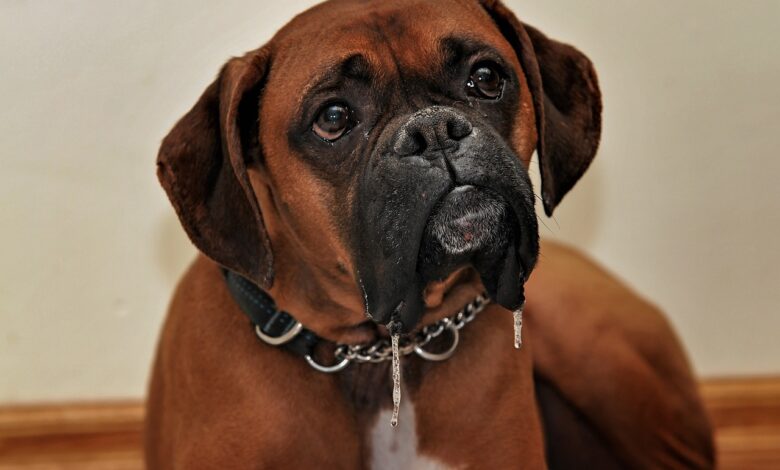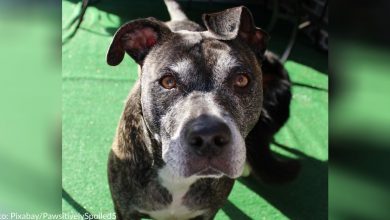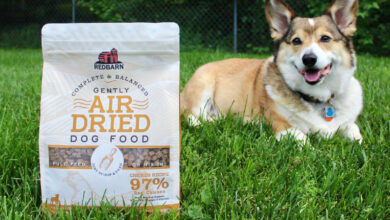Ideal Diet for Boxers – The Ultimate Boxer Feeding Guide

Boxers, known for their muscular build and boundless energy, are a beloved breed among dog owners. However, their unique physical attributes and high energy levels mean they have specific dietary needs. This guide is designed to help Boxer owners understand the optimal nutrition required to keep their pets healthy, active, and happy.
Understanding the Nutritional Needs of Boxers
Boxers require a diet that supports their muscular build and high energy levels. The ideal diet for a Boxer should be rich in high-quality proteins, have moderate to high-fat content, and include easily digestible carbohydrates. It is essential to balance these nutrients to support their overall health, particularly their heart and joint health.
High-Quality Protein: Essential for Muscle Health
Protein is a crucial component of a Boxer’s diet, necessary for maintaining their muscular physique. Look for dog food that lists real meat, like chicken, beef, or fish, as the primary ingredient. A protein-rich diet supports muscle repair and growth, which is vital for this active breed.
Healthy Fats: Supporting Energy and Coat Health
Fats are an essential source of energy for Boxers and also support a healthy coat and skin. Sources of good fats include fish oil, flaxseed, and chicken fat. Omega-3 and Omega-6 fatty acids, in particular, are beneficial for maintaining a shiny coat and healthy skin.
Carbohydrates for Energy: Selecting the Right Sources
While Boxers need less carbohydrates compared to protein and fat, the right kind of carbs is important for sustained energy. Complex carbohydrates like sweet potatoes, brown rice, and oats provide long-lasting energy and help maintain a healthy digestive system.
Vitamins and Minerals: Supporting Overall Health
Vitamins and minerals are vital for a Boxer’s immune system, bone health, and overall bodily functions. Look for foods enriched with essential vitamins like A, C, and E, and minerals like calcium and phosphorus. These nutrients support various body functions, from vision to bone health.
Portion Control: Preventing Obesity in Boxers
Boxers are prone to obesity if their diet is not managed correctly. Controlling portion sizes and feeding them two meals a day can help manage their weight. Regular exercise, in combination with a balanced diet, is crucial for maintaining their ideal weight.
Special Dietary Considerations for Boxer Puppies
Boxer puppies have different nutritional needs compared to adult Boxers. Puppy formulas that are rich in protein and fat and have the right balance of calcium and phosphorus are crucial for their growth and development. Feeding them small, frequent meals is recommended.
Wet Food vs. Dry Food: What’s Best for Boxers?
The choice between wet and dry food depends on your Boxer’s preferences and health needs. Dry food can help with maintaining dental health, while wet food is more hydrating and often more palatable. A mix of both can offer the benefits of each type.
Healthy Treats for Boxers: Snacking the Right Way
Treats are an important part of training and bonding with your Boxer. Choose healthy, low-calorie treats that do not contain artificial additives. Fresh fruits and vegetables like carrots or apples can be good snack options.
Transitioning Your Boxer to a New Diet
When changing your Boxer’s diet, do it gradually over a week or more. Start by mixing a small amount of the new food with the current food, gradually increasing the new and decreasing the old. This helps prevent digestive upset.
Decoding Dog Food Labels: Selecting the Best Option for Your Boxer
Understanding dog food labels is important to choose the right food for your Boxer. Look for products with high-quality ingredients and real meat as the first ingredient. Avoid foods with unnecessary fillers and artificial additives.
Homemade Diets: Are They Suitable for Boxers?
Homemade diets can be tailored to your Boxer’s specific needs but require careful planning to ensure they are nutritionally complete. Consult a veterinarian or a canine nutritionist before choosing a homemade diet for your Boxer.
Hydration: Ensuring Your Boxer Stays Well-Hydrated
Adequate hydration is essential for Boxers. Ensure your dog has constant access to fresh water, as dehydration can lead to health issues, especially after exercise or in hot weather.
Conclusion: Tailoring the Diet to Your Boxer’s Needs
Feeding your Boxer a balanced, nutritious diet tailored to their specific needs is essential for their overall health and well-being. Regular vet check-ups, careful monitoring of their weight and health, and adjustments to their diet as needed will help ensure your Boxer leads a healthy, active life. Remember, each Boxer is unique, and what works for one may not work for another. Therefore, it’s important to consider your individual dog’s needs when planning their diet.
What Health Issues Are Boxers Prone To, and How Can a Proper Diet Help?
Boxers, with their energetic demeanor and strong physique, are a beloved breed. However, they are prone to specific health issues that can be influenced by their diet. Understanding these health risks and how a proper diet can help manage or prevent them is crucial for Boxer owners. This comprehensive guide delves into the common health issues in Boxers and the role of diet in mitigating these conditions.
Heart Conditions in Boxers: Dietary Management
Boxers are known to be prone to heart conditions, including aortic stenosis and boxer cardiomyopathy. A diet low in sodium and rich in omega-3 fatty acids can support heart health. Additionally, supplements like taurine and L-carnitine, often included in high-quality dog foods, can be beneficial for heart function.
Obesity and Joint Health: Maintaining a Healthy Weight
Obesity is a common issue in Boxers, leading to added stress on joints and exacerbating conditions like hip dysplasia. A diet with controlled calorie content and regular exercise is vital. Foods rich in omega-3 fatty acids can help maintain healthy joints, while the correct balance of calcium and phosphorus supports strong bones.
Cancer Risks in Boxers: Nutritional Prevention Strategies
Boxers have a higher risk of developing certain cancers, including mast cell tumors. While diet cannot entirely prevent cancer, feeding a diet rich in antioxidants (like vitamins E and C) can help support the immune system. Avoiding carcinogenic ingredients and providing a diet with fresh, whole foods can also be beneficial.
Skin Allergies and Coat Health: The Role of Nutrition
Boxers often suffer from skin allergies that can lead to dermatitis. A diet rich in omega-3 and omega-6 fatty acids can promote healthy skin and a shiny coat. Limited-ingredient diets or hypoallergenic foods can help identify and avoid allergens.
Digestive Issues: Ensuring Gastrointestinal Health
Boxers may experience digestive issues like bloat or sensitive stomachs. Feeding smaller, more frequent meals and avoiding exercise around meal times can reduce the risk of bloat. Easily digestible foods with sources of fiber, probiotics, and prebiotics can support digestive health.
Managing Boxer Myopathy: Nutritional Support
Boxer Myopathy, also known as Arrhythmogenic Right Ventricular Cardiomyopathy (ARVC), is a genetic condition common in the breed. While nutrition cannot cure this condition, a well-balanced diet can support overall health and well-being. Consult with a veterinarian for specific dietary recommendations for dogs with ARVC.
Eye Health in Boxers: Dietary Considerations
Boxers are prone to certain eye conditions, such as corneal ulcers and progressive retinal atrophy. Diets rich in antioxidants, vitamins A and C, and certain minerals like zinc can support eye health. Regular check-ups with a vet are also important for early detection and treatment.
Hypothyroidism in Boxers: The Importance of Diet
Boxers can be susceptible to hypothyroidism, affecting their metabolism. A diet that supports thyroid health, which might include iodine-rich foods and controlled calorie intake, can be beneficial. Regular veterinary monitoring is essential for managing this condition.
Kidney Health: Dietary Management for Boxers
Like all breeds, Boxers can develop kidney issues, especially as they age. A diet lower in phosphorus and protein, but rich in omega-3 fatty acids, can support kidney function. Always consult with a veterinarian for dietary recommendations for dogs with kidney issues.
Importance of a Balanced Diet in Boxer Health
A balanced diet for a Boxer should include the right balance of proteins, fats, carbohydrates, vitamins, and minerals. This balance supports their overall health and can mitigate the risks of breed-specific health issues.
Conclusion: Diet as a Key Component of Boxer Health Care
Boxers are prone to certain health issues, a proper diet can play a significant role in preventing or managing these problems. Tailoring your Boxer’s diet to their specific health needs can greatly enhance their quality of life. Regular veterinary check-ups and careful consideration of dietary choices can help ensure that your Boxer remains healthy and happy throughout their life.
Frequently Asked Questions About Feeding Boxers

1. What is the best type of food for a Boxer?
The best food for a Boxer is high-quality dog food that is rich in proteins and healthy fats, and designed for large breeds. Look for foods with real meat as the first ingredient and avoid fillers like corn and wheat. Balanced nutrition tailored to their activity level and age is crucial for their health.
2. How much should I feed my Boxer?
The amount to feed a Boxer varies based on their age, size, and activity level. Generally, adult Boxers need about 2.5 to 3 cups of dry food per day, split into two meals. Always follow the feeding guidelines on the food package and adjust as needed based on your dog’s health and activity level.
3. Can Boxers eat a grain-free diet?
Boxers can eat a grain-free diet, but it’s not necessary unless they have specific allergies or sensitivities. Ensure that the grain-free diet is balanced and provides all the necessary nutrients. Consult with your vet before making significant changes to your dog’s diet.
4. Are there any foods that are harmful to Boxers?
Yes, several foods are harmful to Boxers, including chocolate, grapes, raisins, onions, garlic, and xylitol. It’s important to avoid these foods and be cautious about human foods you share with your pet.
5. How often should I feed my Boxer?
Feeding your Boxer twice a day is generally recommended. This helps to manage hunger, maintain stable energy levels, and help prevent conditions like bloat, which is especially important for this breed.
6. Is it okay to give my Boxer human food?
While some human foods are safe for Boxers in moderation, others can be harmful. Safe options include cooked lean meats, certain fruits, and vegetables, and plain rice. Always avoid toxic foods and consult with your vet about safe human food options.
7. Should I give my Boxer supplements?
Supplements can be beneficial for Boxers, especially those with specific health concerns like joint issues. However, they should only be given under a veterinarian’s advice to ensure they are necessary and safe.
8. How can I tell if my Boxer is overweight?
An overweight Boxer may have a less visible waist and rib definition. You should be able to feel their ribs without a thick layer of fat. Consult your vet for a proper evaluation and diet plan if your Boxer is overweight.
9. What is the best way to transition my Boxer to a new food?
Transition your Boxer to new food gradually over a period of 7-10 days. Start by mixing a small amount of the new food with their current food, gradually increasing the new food and decreasing the old. This helps prevent digestive upset.
10. Can Boxers be vegetarians?
While dogs can survive on a vegetarian diet, it’s not ideal for Boxers, as they thrive on a diet that includes high-quality animal proteins. If considering a vegetarian diet for health or ethical reasons, consult with a vet to ensure all nutritional needs are met.
11. What are the signs of food allergies in Boxers?
Signs of food allergies in Boxers include itching, skin rashes, ear infections, and gastrointestinal problems like diarrhea and vomiting. If you suspect your Boxer has a food allergy, consult a veterinarian for proper diagnosis and management.
12. Is wet or dry food better for Boxers?
The choice between wet and dry food depends on your Boxer’s preferences and health needs. Dry food is beneficial for dental health, while wet food can be more palatable and hydrating. Some owners opt for a mix of both to provide a balance of benefits.
13. How can I prevent my Boxer from eating too fast?
To prevent your Boxer from eating too fast, consider using a slow feeder bowl, dividing their meals into smaller portions, or feeding them using interactive food puzzles. Eating slowly is important for digestion and can reduce the risk of bloat.
14. Can I feed my Boxer a raw diet?
Feeding a Boxer a raw diet can be done, but it requires careful planning to ensure it’s balanced and safe. Raw diets have risks like bacterial contamination and nutritional imbalances, so consult with a vet before starting a raw diet.
15. How do I know if my Boxer’s diet is nutritionally balanced?
A nutritionally balanced diet for a Boxer should include the right proportions of protein, fat, carbohydrates, vitamins, and minerals. Look for dog foods that meet AAFCO guidelines and consult with your veterinarian to ensure the diet meets your dog’s specific needs.




